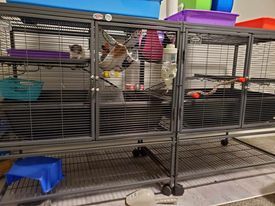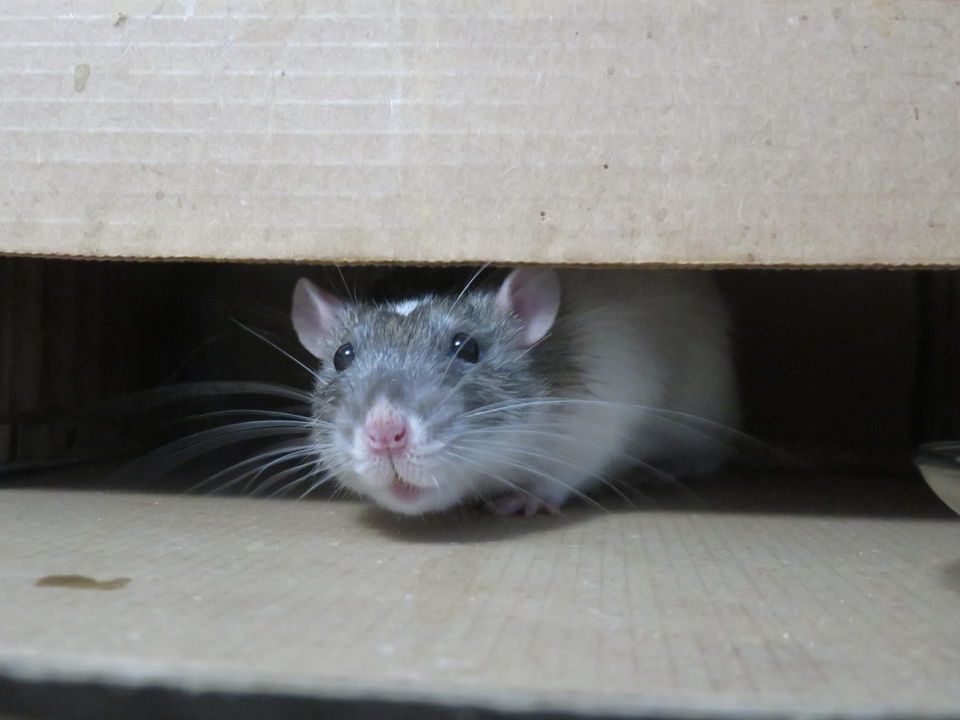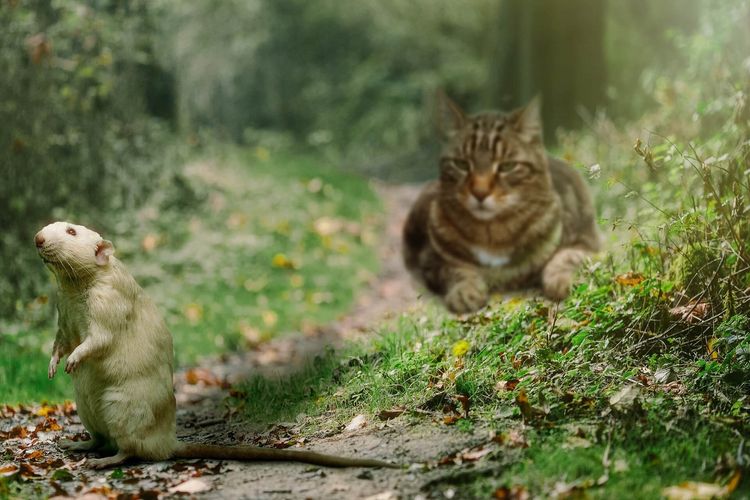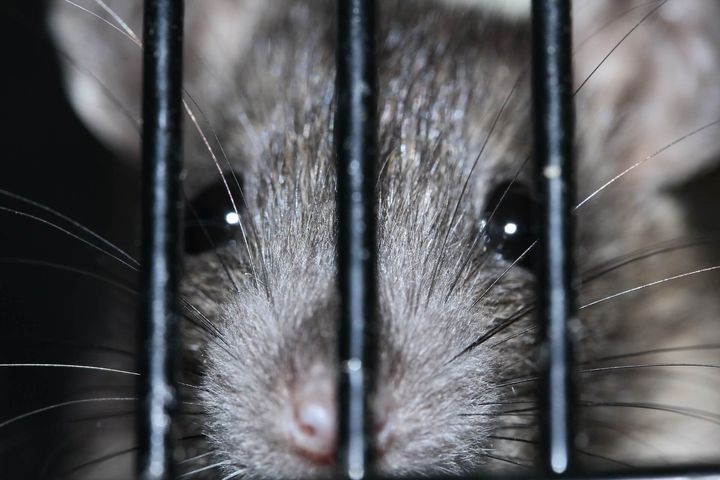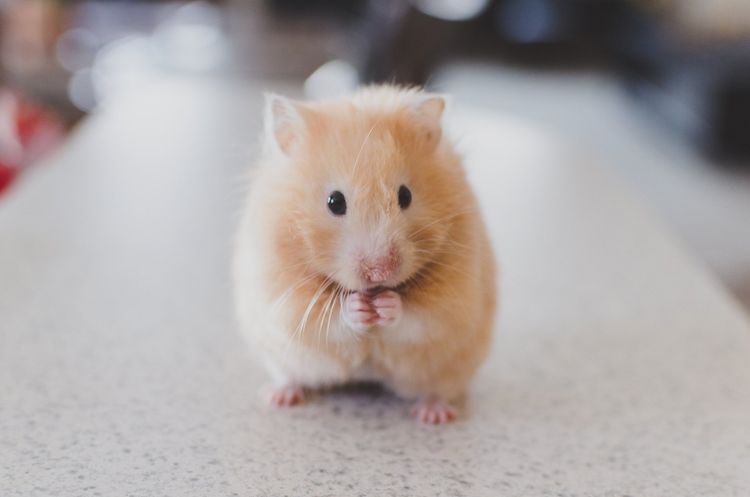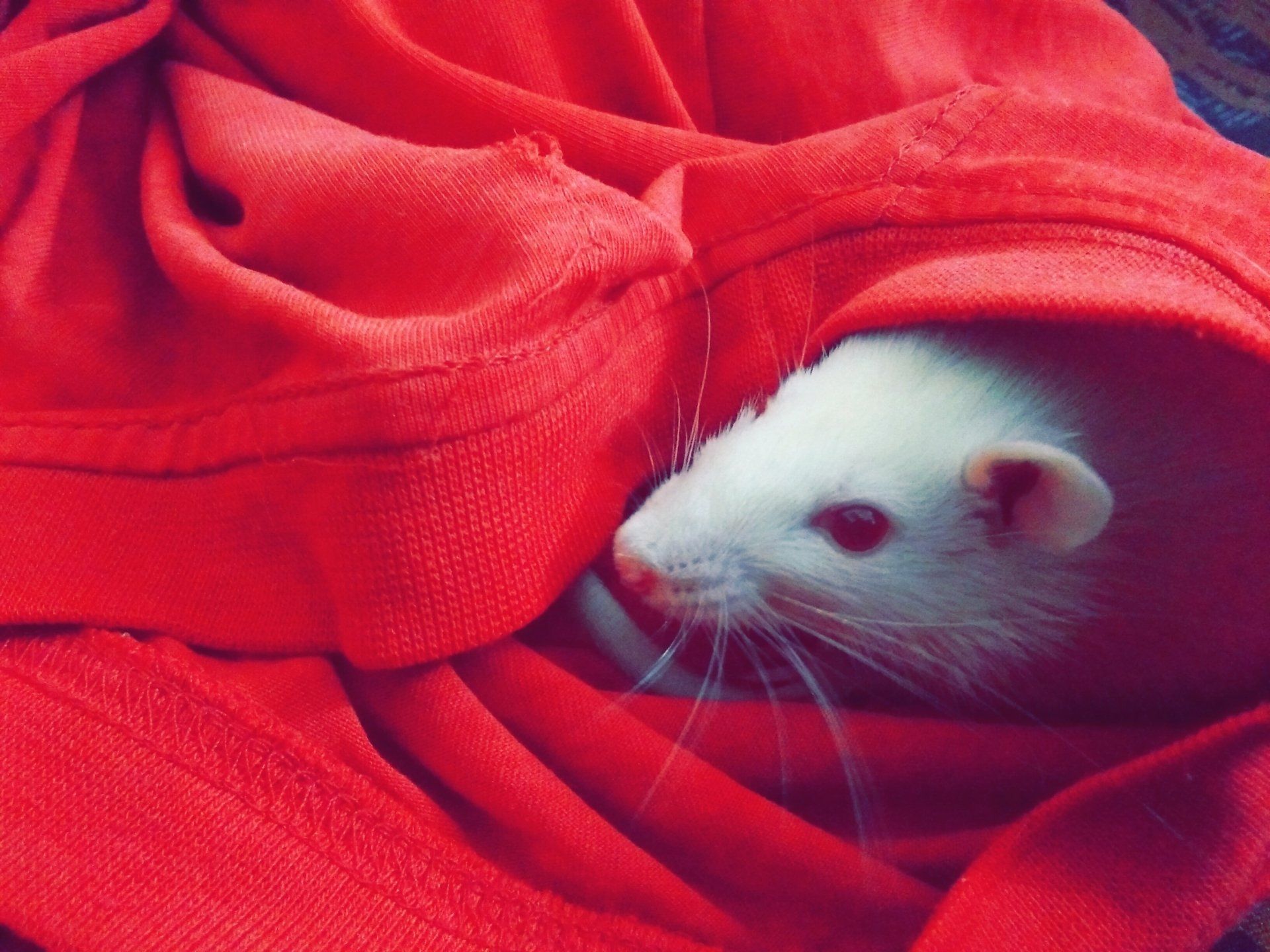Why Rats and Cats (or Dogs) Don't Make Great Roommates
This post contains affiliate links and I will be compensated if you make a purchase after clicking on my links.
Why Rats and Cats (or Dogs) Don't Make Great Roommates
Stories of interspecies friendships are common. The cat is best friends with the dog, the chicken and the goat form a deep bond, the list goes on. But can this be a reality for your pet rat?
The life of your pet rats should not be risked on the hopes of a good relationship with a cat or dog, as adorable as it may look. Rats are prey animals, and the instincts of a predator such as a cat or dog can activate in an instant, making it too late to separate them.
Rats are best kept with other rats and other rats only. It’s not only not worth the risk of another pet hurting your pet rats, but the harm rats can cause to your other pets as well.
4 Reasons Your Rats Shouldn’t Be Roommates With Your Cat or Dog
It can be hard (especially in apartment living) to keep different pets separated. However, with pet rodents such as rats, it’s important to make sure they don’t feel like their life is constantly threatened by a predator. The following are four reasons it’s important to keep your rats separate from your other animals:
1. Fear
If you’ve owned rats before, you know they are not naturally brave. I would describe our “bravest” rat more using the term “curious” rather than “brave”.
She’s interested in checking out new things, but is quick to freeze in fear or come rushing back to me when something unexpected happens.
It’s this fear response and paranoia that helps keep their wild cousins alive, but it’s a double-edged sword. When stuck in a house with the smell of a predator present, there’s no escape!
Of course, the level of fear is going to vary from rat to rat, but imagine something you are terrified of. Now imagine you are stuck in an enclosure and the thing you fear keeps walking past the bars you are behind.
You don’t know that the creature can’t get you, all you know is you can always smell it, and it shows up periodically without warning. Maybe it tries to get at you, maybe it doesn’t, but the fear of its presence is there.
This is what it’s like for a rat with a predator on the other side of the cage. It’s sometimes hard for us as humans to understand just how scary it can be for them.
This fear can affect your rats in a wide spectrum. On the low end, your rats may be stressed out and have a hard time bonding with you and always be skittish. On the more extreme end, I’ve known people’s rats who have died from a stressful encounter with a bigger animal trying to get at them through the cage.
This can either be because of a heart attack from the shock of an animal lunging at them, or the slow decline due to constant stress. If you have cats or dogs, monitor your pet rats’ stress levels to ensure they are in a good state mentally.
2. The Predator Vs. Prey Dynamic
Although our dogs and cats sometimes seem more like couch potatoes than predators, their instincts can kick in in less than a second.
When I was younger, I had a Labrador retriever, the nicest dog anyone could ask for. My nieces and nephews sat on him, stuck their fingers in his mouth, and a whole lot of other things that would make me bite, but he never even reacted.
He was even so lazy he didn't like to play fetch. Surely this dog if any could get along with a smaller animal?
However, when I got guinea pigs, I tried introducing one of them to him and the result was almost disastrous. He got very interested, ears went stiff, and he started shoving his nose at the guinea pig (who was now scared out of her mind).
I pulled her away before he could do anything more, but that solidified in my mind that I would no longer try introducing prey and predator animals.
Our pets are predictable to a point, but they are still animals and have their base instincts.
Just like my old dog, an animal can seem (and be) super nice, and it can be easy for us to personify them and give them human values.
However, they have primal instincts, and if those instincts turn on one day when they have access to your rats, you may not be close enough or quick enough to react, and the result can be disastrous.
3. Size Difference
This one goes along with the predator/prey difference between rats and other animals, but it’s important to cover as rats are quite a bit smaller than most of our other furry friends.
When you think about it, it’s amazing that rats bond with their humans. We are massive giants compared to them!
While dogs and cats aren’t as big as us, they are usually significantly bigger than our rats, and don’t always have the self-control we have. Even if a dog or cat gets along well with a rat, they can inadvertently hurt them while playing just because of how big they are.
This danger of size difference can be seen easily with toddlers and small animals. Sometimes toddlers don’t understand their strength and can (not meaning to) hold a small animal too tightly and harm or kill it.
Similarly, a cat or dog can, thinking they are playing, bat at a rat too hard, or pin it too aggressively, and kill it or significantly harm it without necessarily meaning to.
4. The Risk Just Isn't Worth It
Finally, the risk just isn’t worth it in my opinion. At this point we need to ask ourselves why it’s so important that our rats and other animals get along.
Is it because it’s cute? While I’ve seen pictures of rats and cats or dogs grooming each other or sleeping together and yes, it’s cute, take into account the risks. When weighed against the possibility of stress or death for your pet rats, is it really worth it?
You may want your animals to get along for the simple purpose of living in harmony. Again, we can’t place human values on animals. Your dog isn’t a “bad dog” because he really wants to eat your pet rats, that’s just his natural instinct.
While far less likely than your cat or dog causing harm to your rat, your rat can also harm your cat or dog in self-defense. Though very rare, a rat can transmit disease to another pet through a bite or scratch.
Ultimately, you just have to weight the risks and ask, “is this necessary and worth my pet rats becoming possibly traumatized, injured, or killed?” The answer is going to be no.
4 Ways To Keep Your Rats Comfortable In A Multi-Animal Home
Does this mean it’s impossible to own rats when you own other animals already? Of course not! I fully believe multiple types of animals can be kept in the same home by taking precautions and providing adequate care for every animal. Following are four ways to keep a rat comfortably in a home that already has other pets:
1. Cage Location
When deciding where to keep your rats cage, consider the primary locations of your other animals. Is your dog or cat in your bedroom a lot? Then that may not be the best place for your rats’ cage.
Put your rat cage somewhere the other animals can’t reach. This not only keeps them physically safe; it helps keep their stress levels down as well, as they won’t be getting constantly inspected by bigger animals.
With dogs it’s easier, as they can’t climb as easily as cats can. If you have dogs, the cage can just be put up out of their reach if the smell of them doesn’t seem to stress your rats out too much.
With cats, it’s best to put the cage in a separate room they don’t have access to, as cats will be able to climb up to access the cage, and depending on the type of cage might be able to fit their paws through the bars and swipe at the rats.
2. Eliminate The Smell Of Predators
If you have the space for it, keeping the rats’ cage in a room where your other pets aren’t allowed access to is the best way to keep their stress levels down regarding the smell of the predatory animals.
Some people recommend limited exposure to other animals in the home, such as cats or dogs, to get your rats used to the smell of the other animal in a controlled environment.
If you live in an apartment or have limited space, this might be necessary for your rats to have peace of mind. However, this method should be used with extreme caution for the following reasons:
· While it’s good to get them somewhat used to different senses and smells, you don’t want them to get too accustomed to the other animal to the point of not seeming them as a threat. A level of caution is good in small animals like rats.
· You will want to make sure you have good control over your rats. If they get too scared, they may bolt, which could lead to your other animal(s) chasing and possibly catching them. Even if they don’t chase them, you will then have to deal with putting your other animals away while you catch one or more scared rats.
· Keep the other animals far enough away that they can’t bite or grab the rats. Dogs especially can get very excited about new animals and try to get as close to them as possible. When the gap is closed, there is a higher likelihood for accidents to happen, so either having the cat or dog in another room or restrained is best when getting pet rats used to their smell.
3. Don't Let Them Interact
It can be easy after a while to get lax with our animals, or to think that maybe they’ve been around each other a long enough time and can now get along.
However, to let a predator type animal have access to your rats can be very stressful for them. Even if they seem to be fine with it and it doesn’t stress them out, accidents can happen.
I like to think of it this way: Everything may be fine, until it’s not. I would never want any regrets hanging over my head over something that could have been easily avoided.
We should have nothing to prove, especially at the expense of our pets wellbeing. Take into consideration what is best for all the animals involved.
4. "Predator Free" Free Roam Time
Just because you have other animals that your rats can’t be loose with doesn’t mean they don’t still need their exercise time out of the cage!
A great method to use (as most of us don’t have limitless rooms in our homes) is to create a free roam environment in the same room the rats are kept. If this is your bedroom, your bed can be a great place for your rats to play on!
Our favorite place for free roaming is our bathroom. It’s relatively smell free, easy to block off, and super easy to clean up after.
If you don’t have enough space for a separate room, just ensure your other animals are locked up when your rats have free roam time. The other pets can either be put outside, kept in a kennel, or closed off in another part of the house.
What About Other Rodents?
We’ve discussed not letting bigger predator animals like dogs and cats interact with our rats, but what about keeping them with other rodents? Surely rats and mice get along, right?
Wrong! Rats and mice are natural enemies, and rats will kill mice who are kept in the same cage as them.
I’ve even heard of people using their free roaming rats in place of cats as mousers. I don’t recommend this, as pet rats can get diseases from wild rodents, especially if they eat any of their body.
Regardless, rats are incredibly territorial, and aren’t likely to tolerate another rodent in their territory. Even new rats have to be introduced slowly and methodically (check out the carrier method for a great way to introduce new rats).
It is the same for gerbils, hamsters, and other rodents. Rats cannot be housed and coexist with them. Even if they weren’t territorial and didn’t fight, different species of rodents have different needs, nutritionally, physically, and socially, and wouldn’t make good cagemates.
For these reasons, not only should rats not be housed with other rodents, but they should not be allowed interaction with them during free play time.
Final Thoughts
While the picture of a rat and a cat snuggling up sure is cute, it’s just not worth the risk of something going wrong. Your rat will do just fine with friends of their own kind, and will very much prefer it!
Do you have animals other than rats? Tell us about them below!
